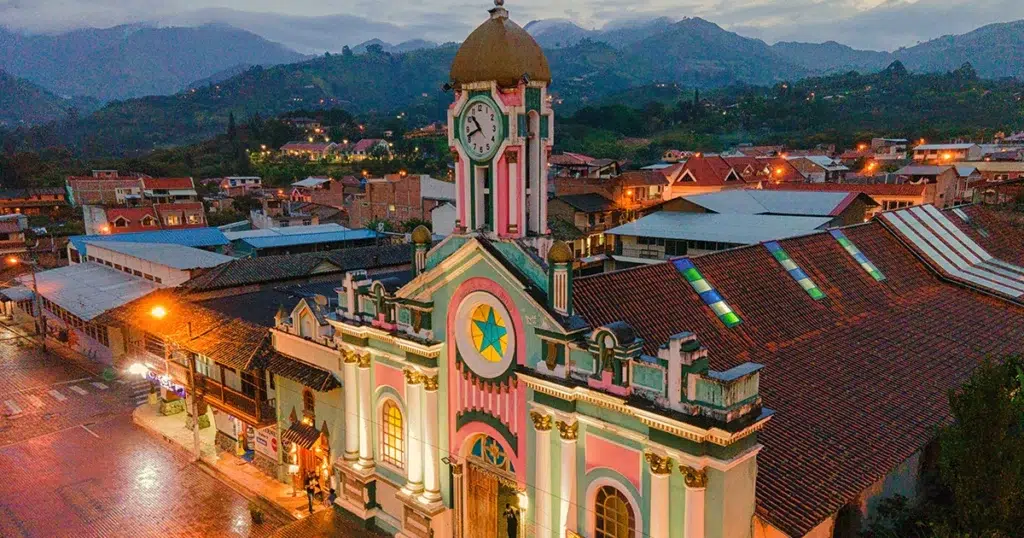Hacer negocios en Dominican Republic
- How quickly can I set up a business?
- What is the minimum investment needed?
- How can I raise finance?
- What are the legal requirements for setting up my business?
- What structure should I consider?
- What advice can you give me in regards to payroll and taxation requirements?
- Is there anything else that I should know?
How quickly can I set up a business?
As the largest and fastest-growing economy in the Caribbean, the Dominican Republic (DR) offers a highly strategic platform for regional business expansion. With investor-friendly legislation, modern infrastructure, and a young, skilled workforce, the DR is a premier destination for foreign investment and enterprise development.
Fast-Track Business Incorporation
Setting up a business in the DR can be accomplished in under seven business days with the proper documentation. The streamlined process includes:
• Choosing a legal structure (most commonly an SRL equivalent to LLC).
• Commercial name registration with ONAPI.
• Drafting and signing bylaws.
• Paying the incorporation tax (1% of capital) to the DGII (Tax Authorities).
• Registration with the local Chamber of Commerce.
• Taxpayer registration (RNC) with the DGII.
• Enrollment in the Social Security Treasury (TSS) and other labor institutions.
What is the minimum investment needed?
There is no legal minimum capital for incorporating an SRL; however, a recommended seed capital of RD$100,000–RD$500,000 (US$1,700–US$9,000) ensures operational readiness.
For investors seeking residency benefits, the minimum investment generally starts at US$200,000, depending on the asset class (business, real estate, financial instruments).
How can I raise finance?
Investors benefit from a diverse financial ecosystem:
• Commercial banking solutions for working capital and expansion.
• Private equity and investment funds in high-potential sectors like tourism, energy, and tech.
• Government and multilateral programs (Banca Solidaria, PROMIPYME, IDB).
• Public trust and Free Zone incentives supporting export and innovation-driven ventures.
What are the legal requirements for setting up my business?
Operating in the DR requires:
• DGII registration for tax and billing compliance.
• Mandatory affiliation with the TSS for companies with employees.
• Sector-specific licensing (health, education, tourism, etc.).
• Environmental and municipal permits as applicable.
What structure should I consider?
The Dominican legal framework offers flexible structures to match various business models:
1. Sociedad de Responsabilidad Limitada (SRL)
• 2–50 partners
• No legal minimum capital (recommended: RD$100,000)
• Ideal for SMEs and family-owned enterprises
2. Sociedad Anónima (SA)
• Minimum capital: RD$30 million for classification as a large enterprise
• Designed for corporate groups and financial institutions
3. Sociedad Anónima Simplificada (SAS)
• From 1 shareholder
• Customizable governance model
• Optimal for startups and growth-stage companies
4. Sole Proprietorship
• Direct liability
• Suitable for low-risk, individual activities
What advice can you give me in regards to payroll and taxation requirements?
Corporate Taxes
• Income Tax (ISR): 27% of net income
• Asset Tax: 1% if no income tax is due
• VAT (ITBIS): 18% on most goods/services
Payroll Compliance
• Minimum wage: RD$11,900–RD$24,990 depending on the sector
• Workweek: 44 hours
• Mandatory benefits: 14 vacation days, 10% profit sharing, year-end bonus
• Employer social contributions:
o AFP (Pension): 7.10%
o SFS (Health): 7.09%
o INFOTEP (Training): 1.00%
Is there anything else that I should know?
Key Investment Incentives
• Free Zones: Up to 15 years of full tax exemption for export or service operations.
• Law 16-95 on Foreign Investment: Free repatriation of profits and capital; equal treatment for foreign investors.
• CONFOTUR (Tourism Incentives Law No. 158-01) program that grants tax exemptions to tourism and real estate projects to encourage investment and development in the sector. Eligible projects can receive up to 15 years of tax benefits, including exemptions on income tax, transfer tax, VAT, and import duties.
• Law 57-07 Renewable Energy Incentives: Promotes clean energy and reduce dependency on fossil fuels with tax breaks, import duty exemptions (100% VAT), and 40% investment credit.
•Law 28-01 Border Zone Incentives
Grants 100% tax exemptions for companies operating in 7 border provinces to promote investment and job creation.
•Law 189-11 Real Estate Trusts (Fideicomiso)
Facilitates real estate and social housing projects via trust structures with tax and financing benefits.
•Law 108-10 Film Industry Promotion
Provides tax credits and exemptions for local and international film productions to develop the film sector.
• Trade Agreements: DR-CAFTA, EU, and CARICOM offer preferential market access.
• Stable macroeconomic environment: Low inflation and robust monetary policy.
•Skilled, bilingual labor force, especially in tourism and service industries
¿Cómo puede Kreston hacer crecer su negocio?
Seleccione su tipo de empresa:
Últimas noticias

Perspectivas del mercado medio en América Latina
Ya está disponible la quinta edición de Going Global, que destaca las perspectivas del mercado medio en América Latina.

Kreston FLS anuncia servicios de Consultoría en Finanzas Corporativas
Kreston FLS anuncia la incorporación a su cartera de servicios de Consultoría en Finanzas Corporativas, liderados por el CPA José Luis Madariaga Cervantes.

Aumento del IVA en Ecuador en 2024
Ecuador verá aumentar los tipos del IVA en 2024 para hacer frente a un déficit de 5.000 millones de dólares, impulsado en parte por la reducción de la producción de petróleo y el aumento del gasto para hacer frente a los continuos disturbios en el país. La subida también satisface un nuevo acuerdo de financiación con el Fondo Monetario Internacional.
